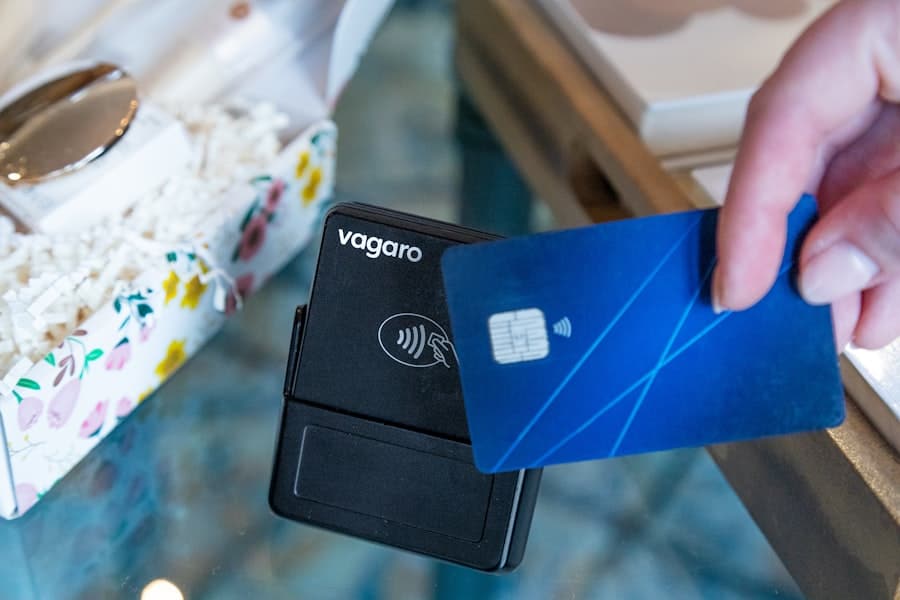In recent years, the landscape of retail transactions has undergone a significant transformation, largely driven by the advent of cryptocurrency. Initially perceived as a niche market primarily for tech enthusiasts and investors, cryptocurrencies like Bitcoin, Ethereum, and others have gained traction among mainstream consumers and businesses alike. The rise of cryptocurrency payments in retail can be attributed to several factors, including the increasing acceptance of digital currencies, advancements in blockchain technology, and a growing desire for alternative payment methods that offer speed, security, and lower transaction fees.
The COVID-19 pandemic accelerated the shift towards digital payments, as consumers sought contactless options to minimize physical interactions. Retailers began to recognize the potential of cryptocurrencies not only as a payment method but also as a way to attract a new demographic of tech-savvy customers. As major companies like Tesla and Overstock started accepting Bitcoin, the legitimacy of cryptocurrency as a viable payment option gained momentum.
This shift has led to a burgeoning ecosystem where retailers are exploring the integration of cryptocurrency payments into their existing systems, thereby enhancing customer experience and expanding their market reach.
Key Takeaways
- Cryptocurrency payments are on the rise in retail, with more retailers accepting digital currencies as a form of payment.
- Advantages for retailers include lower transaction fees and access to a global customer base, while disadvantages include price volatility and regulatory uncertainty.
- Successful retailers like Overstock and Shopify have embraced cryptocurrency payments, experiencing increased sales and customer loyalty as a result.
- Implementing cryptocurrency payment systems requires careful consideration of security measures and compliance with relevant regulations.
- Consumer adoption of cryptocurrency payments is growing, particularly among younger demographics, highlighting the need for retailers to cater to this preference.
Advantages and Disadvantages for Retailers
The adoption of cryptocurrency payments presents a unique set of advantages for retailers. One of the most compelling benefits is the reduction in transaction fees compared to traditional credit card processing. Credit card companies typically charge merchants between 1.5% to 3% per transaction, while cryptocurrency transactions can often be processed for a fraction of that cost.
This reduction in fees can significantly improve profit margins, especially for small businesses operating on thin margins. Additionally, cryptocurrency transactions are generally irreversible, which reduces the risk of chargebacks—a common issue that can lead to financial losses for retailers. However, the integration of cryptocurrency payments is not without its challenges.
One major disadvantage is the volatility associated with cryptocurrencies. The value of Bitcoin and other digital currencies can fluctuate dramatically within short periods, which poses a risk for retailers who may receive payments that lose value before they can convert them into fiat currency. Furthermore, the regulatory landscape surrounding cryptocurrencies is still evolving, leading to uncertainty regarding compliance and taxation.
Retailers must navigate these complexities carefully to avoid potential legal pitfalls. Additionally, the technical knowledge required to implement and maintain cryptocurrency payment systems can be daunting for some retailers, particularly those without a strong background in technology.
Case Study: Successful Retailers Accepting Cryptocurrency Payments

Several retailers have successfully integrated cryptocurrency payments into their business models, showcasing the potential benefits and opportunities that come with this innovative approach. One notable example is Newegg, an online electronics retailer that began accepting Bitcoin in 2014.
The retailer reported a significant increase in sales from customers who preferred using Bitcoin over traditional payment methods. This case illustrates how accepting cryptocurrency can enhance customer loyalty and attract a niche market. Another compelling case is that of Starbucks, which has partnered with the digital wallet app Bakkt to allow customers to pay for their coffee using Bitcoin.
While Starbucks does not directly accept Bitcoin at the point of sale, the partnership enables customers to convert their cryptocurrency into U.S. dollars within the Bakkt app before making purchases at Starbucks locations. This innovative approach not only broadens Starbucks’ customer base but also demonstrates how established brands can leverage partnerships to facilitate cryptocurrency transactions without fully committing to direct acceptance.
Implementing Cryptocurrency Payment Systems
For retailers considering the integration of cryptocurrency payment systems, several key steps must be taken to ensure a smooth transition. First and foremost, retailers need to choose a reliable payment processor that specializes in cryptocurrency transactions. Companies like BitPay and CoinGate offer services that allow merchants to accept various cryptocurrencies while providing tools for conversion into fiat currency.
Selecting a reputable processor is crucial for minimizing risks associated with volatility and ensuring compliance with regulatory requirements. Once a payment processor is selected, retailers must update their point-of-sale (POS) systems to accommodate cryptocurrency transactions. This may involve software updates or hardware modifications to ensure compatibility with digital wallets and blockchain technology.
Training staff on how to handle cryptocurrency payments is also essential; employees should be well-versed in the process to assist customers effectively and address any questions or concerns that may arise during transactions.
Consumer Adoption and Preferences
Consumer adoption of cryptocurrency payments has been steadily increasing, driven by a combination of factors including technological advancements and changing attitudes towards digital currencies. A survey conducted by Deloitte found that nearly 75% of consumers are interested in using cryptocurrencies for everyday purchases, indicating a growing acceptance of digital currencies as a legitimate form of payment. This trend is particularly pronounced among younger generations who are more comfortable with technology and digital finance.
Moreover, consumer preferences are shifting towards payment methods that offer convenience and security. Cryptocurrencies provide an added layer of privacy compared to traditional payment methods, as transactions do not require personal information to be shared with merchants. This aspect appeals to consumers who prioritize data security and wish to maintain control over their financial information.
As more retailers begin to accept cryptocurrencies, consumer demand for these payment options is likely to continue rising.
Regulatory and Security Considerations

The regulatory environment surrounding cryptocurrencies remains complex and varies significantly from one jurisdiction to another. Retailers must navigate a patchwork of regulations that govern the use of digital currencies, including anti-money laundering (AML) and know your customer (KYC) requirements. Failure to comply with these regulations can result in hefty fines or legal repercussions, making it imperative for retailers to stay informed about local laws and guidelines related to cryptocurrency transactions.
Security is another critical consideration when implementing cryptocurrency payment systems. While blockchain technology is inherently secure due to its decentralized nature, retailers must still take precautions against potential cyber threats such as hacking or phishing attacks. Implementing robust cybersecurity measures, including encryption protocols and secure wallets for storing cryptocurrencies, is essential for protecting both the retailer’s assets and customer information.
Additionally, educating employees about security best practices can help mitigate risks associated with handling digital currencies.
Future Trends in Cryptocurrency Payments for Retailers
As the adoption of cryptocurrencies continues to grow, several trends are emerging that could shape the future of cryptocurrency payments in retail. One notable trend is the increasing integration of cryptocurrencies with loyalty programs and rewards systems.
This approach not only encourages consumer adoption but also fosters brand loyalty among tech-savvy customers. Another trend is the rise of stablecoins—cryptocurrencies designed to maintain a stable value by pegging them to traditional assets like fiat currencies or commodities. Stablecoins address one of the primary concerns associated with cryptocurrency volatility, making them an attractive option for retailers looking to accept digital currencies without exposing themselves to significant financial risk.
As stablecoins gain traction in the market, they may become a preferred method for both consumers and retailers alike.
Tips for Retailers Considering Cryptocurrency Payments
For retailers contemplating the acceptance of cryptocurrency payments, several practical tips can facilitate a successful implementation process. First, conducting thorough research on various cryptocurrencies and their respective ecosystems is essential. Understanding the differences between coins like Bitcoin, Ethereum, and stablecoins will help retailers make informed decisions about which currencies to accept based on their target audience and market trends.
Additionally, engaging with customers through surveys or feedback mechanisms can provide valuable insights into consumer preferences regarding cryptocurrency payments. Retailers should consider piloting cryptocurrency acceptance in select locations or during specific promotional events to gauge customer interest before rolling out a full-scale implementation. Finally, staying informed about developments in the regulatory landscape is crucial for ensuring compliance and mitigating risks associated with cryptocurrency transactions.
Joining industry associations or networks focused on blockchain technology can provide retailers with access to resources and expertise that will aid in navigating this rapidly evolving space. By taking these steps, retailers can position themselves at the forefront of the cryptocurrency revolution while enhancing their customer experience and expanding their market reach in an increasingly digital economy.
In the evolving landscape of digital payments, the case study on retailers accepting cryptocurrency payments highlights a significant shift in consumer behavior and business adaptation. As businesses explore innovative payment solutions, it’s crucial to stay informed about technological advancements across various sectors. For instance, the article on Tesla refuting Elon Musk’s timeline on full self-driving offers insights into how companies are navigating the challenges of integrating cutting-edge technology into their operations. Both topics underscore the importance of adaptability and forward-thinking in today’s rapidly changing market.
FAQs
What is cryptocurrency?
Cryptocurrency is a digital or virtual form of currency that uses cryptography for security and operates independently of a central bank.
What are some popular cryptocurrencies?
Some popular cryptocurrencies include Bitcoin, Ethereum, Ripple, Litecoin, and Bitcoin Cash.
How do retailers accept cryptocurrency payments?
Retailers can accept cryptocurrency payments by integrating a payment processor that allows customers to pay with cryptocurrencies. The payment processor then converts the cryptocurrency into the retailer’s preferred fiat currency.
What are the benefits of retailers accepting cryptocurrency payments?
Accepting cryptocurrency payments can provide retailers with lower transaction fees, faster international transactions, and access to a new customer base that prefers using cryptocurrencies.
Are there any risks for retailers accepting cryptocurrency payments?
Some risks for retailers accepting cryptocurrency payments include price volatility, regulatory uncertainty, and potential security vulnerabilities.
Which retailers currently accept cryptocurrency payments?
Several retailers, including Overstock, Newegg, and Shopify, accept cryptocurrency payments. Additionally, some smaller businesses and online stores also accept cryptocurrencies as a form of payment.

